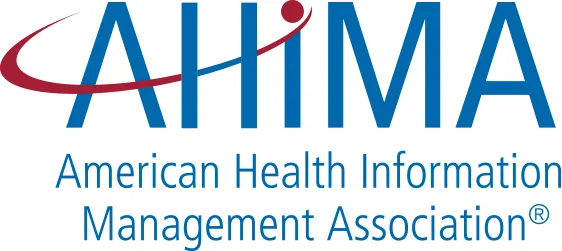Explore Recognized Certifications in Sustainable Agriculture
If you are considering a career in sustainable farming or regenerative agriculture, getting certified can help. These certifications show your commitment to environmental stewardship, animal welfare, and soil health. They also support your goals in food systems, supply chain transparency, and organic crop production.
Across the U.S., several recognized programs offer sustainable agriculture certification. These offer credibility for farmers and food producers and help you make a positive impact on the planet while following best practices in organic and sustainable food systems.
Why Choose a Sustainable Agriculture Certification?
Sustainable farming practices reduce environmental impacts and foster long-term land productivity. Certification demonstrates your expertise and commitment in areas such as:
- Organic crop and livestock production
- Soil and water conservation
- Biodiversity and ecosystem protection
- Fair labor practices and animal welfare
It's also an effective way to stand out in today's competitive job market in agriculture, food science, and environmental studies.
Top U.S. Certification Programs for Sustainable Agriculture
Several institutions and organizations offer certification for sustainable or organic agriculture. Below are some of the most respected programs you should consider:
USDA Organic Certification
The United States Department of Agriculture (USDA) certifies farms that meet organic standards. This certification is for those focused on:
- Organic food production and processing
- No synthetic fertilizers or pesticides
- Non-GMO practices
- Sustainable land use
To qualify, you must follow organic practices for three years before applying. This program is ideal for individuals entering organic agriculture or working in natural food product development.
Certified Naturally Grown (CNG)
Certified Naturally Grown is a peer-reviewed alternative to USDA Organic. It’s designed for small-scale, direct-market farmers who use:
- Ecologically responsible farming methods
- No synthetic chemicals
- Transparent growing practices
CNG certification is community-driven and less expensive than USDA certification. It's a strong fit if you're a beginning farmer or operate a family-run farm.
Food Alliance Certification
Food Alliance offers certification focused on the full range of sustainable agriculture standards including:
- Soil and water management
- Energy efficiency and climate protection
- Pesticide reduction
- Fair and safe working conditions
- Animal welfare
If you want to demonstrate accountability across your entire operation—from field to distribution—this broad certification is highly beneficial.
Demeter Biodynamic Certification
This program is centered on biodynamic farming, a holistic approach that views the farm as a self-sustaining ecosystem. It includes:
- Organic practices and crop rotation
- Composting and natural pest control
- Spiritual and ecological stewardship
Demeter USA manages the certification. It is ideal for those pursuing advanced sustainable agriculture careers or those working in health-conscious markets.
Regenerative Organic Certification (ROC)
Founded by the Regenerative Organic Alliance, ROC builds on USDA Organic standards. It sets high standards for:
- Soil health and carbon sequestration
- Animal welfare
- Social fairness for farm labor
ROC promotes regenerative techniques that restore ecosystem vitality. It's a top choice if you're passionate about climate-smart agriculture.
How Do These Certifications Help Your Career?
These certifications enable you to access specialized roles across sustainable food systems, including:
- Organic farm management
- Soil conservation technician
- Sustainable supply chain coordinator
- Policy analyst in sustainable agriculture
- Food safety and compliance expert
Employers in both the private and nonprofit sectors value certified professionals. These include organic cooperatives, government agencies, and environmental organizations.
Who Should Get Certified in Sustainable Agriculture?
If you're dedicated to ethical food production and environmental conservation, these programs are for you. Ideal candidates include:
- Aspiring farmers and agricultural entrepreneurs
- Environmental science or agronomy students
- Current food producers seeking to transition to sustainable methods
- Policy advocates and educators focusing on food systems
Learning the science and business of sustainability prepares you not just for jobs—but for leadership in agricultural resilience.
Frequently Asked Questions About Sustainable Agriculture Certifications
What is the best certification for organic farming?
USDA Organic is the most recognized certification for organic practices in the United States. It signals high standards for soil and crop management and is backed by federal oversight.
Can I apply for more than one sustainable farming certification?
Yes. Many producers hold multiple certifications. For example, you can hold both USDA Organic and Regenerative Organic Certification. This shows your commitment to multiple sustainability goals.
Do I need a degree to get certified?
No, a degree is not always required. However, certifications often demand in-depth knowledge of sustainable farming techniques. Educational programs in agriculture, environmental science, or soil ecology can better prepare you to meet these standards.
How long does certification take?
The process varies. USDA Organic requires a transition period of three years. Other programs like CNG can be completed faster, depending on your operation and documentation.
What jobs can I get with sustainable agriculture certification?
Certifications open doors in a wide range of agricultural careers. These include sustainable farm management, environmental consulting, nonprofit project coordination, and food policy work.
Take the Next Step Toward a Greener Future
Sustainable agriculture certification is more than a credential. It’s a statement about your values and your future in Earth-conscious careers. Whether you're starting out or making a career change, these certifications offer tools and recognition to help you grow—literally and professionally.
Explore the program that fits your interests. Learn science-based methods that protect natural resources, ensure food safety, and support community health. Your journey toward sustainable farming starts with education and action.








